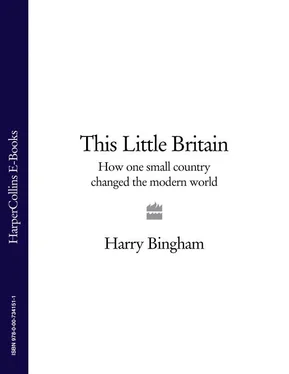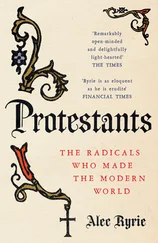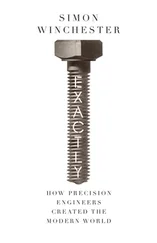For we Brits, this complexity seems simply astonishing. We have two standard noun forms, singular and plural— dog and dogs , for example. We have four standard verb forms: bark, barks, barking and barked . Our adjectives don’t vary at all. * When we encounter a language with the complexity of Polish or Turkish, most of us find it simply stunning. It seems a wonder that Polish or Turkish toddlers ever manage to master the tongue at all.
To a linguist, however, the puzzle is a rather different one. English is a Germanic language, and the only one of its family to have lost almost all inflections. English is, in fact, about the least inflected language ever known. The reason for this has nothing to do with some form of linguistic evolution, from ‘primitive’ inflected languages to ‘modern’ uninflected ones. Rather, the answer has to do with that most English of solutions to precarious situations: muddle, fudge and compromise.
Back in 878, Alfred the Great defeated the Danish army at Edington. The battle checked the hitherto unstopped Viking advance, and enabled Alfred to go on to negotiate a peace agreement which divided the country into two. A line was drawn diagonally across England, running roughly from Chester to London. The area to the south of the line would remain under English rule; the northern part (the ‘Danelaw’) would be ruled by the Danes (though most of those ruled, of course, would be English).
Trade carried on across the line, very much as before. After Alfred’s son, Edward, had won back the Danelaw, then a common authority existed across the whole country, though pockets of Danish settlers were still widespread. Although frustratingly little is known about the pattern of Danish settlement, the likelihood is that significant numbers of Danes contined to come and settle across the eastern seaboard for the next two hundred years or so. Indeed, as late as the nineteenth century, linguists were recording language communities in Lincolnshire whose speech contained entire sentences that were effectively in Danish, not English. Old habits die hard.
Under these conditions—and largely in the east—Danes and English came into regular, daily, routine contact. The two communities would have been able to communicate with relatively little difficulty. Although the English spoke Old English and the Danes spoke Old Norse, the two languages were extremely close, rather in the way Norwegian and Swedish are today. The sentence ‘I’ll sell you the horse that pulls my cart’ translates as:
OLD ENGLISH: Ic selle the that hors the draegeth minne waegn
OLD NORSE: Ek mun selja ther hossit er dregr vagn mine
The main words of this sentence are pretty close. Sell translates as selle / selja . Horse is hors / hossit , and so on. The speakers of one group could fairly easily have guessed the broad meanings of the other party’s words. But what about all those word endings? The cases and genders, tenses, moods and the rest? The chances of a non-native speaker being able to guess the subtle implications of all those word endings would have been approximately nil.
So—and still only in the east—the word endings started to disappear. As traders and others sought to do business, Dane with English and vice versa, they simply started to drop the parts of the language that didn’t function for them. The process moved furthest and farthest in the areas where Dane and English lived closest together. In the west of the country, where Danish influence was minimal, a highly inflected version of English lasted right into the fifteenth century.
In the end, though, the Easterners had the advantage of geography. London, Oxford and Cambridge all fell, more or less, into the eastern zone, and those three centres of cultural power ended up dictating the language the rest of the country would speak. In consequence, English went from being an ordinarily inflected language to one with almost no variation at all: the pidgin product of an uneasy peace.
How should one interpret this change? Almost certainly as a historical-linguistic quirk. Just one of those things. Yet it’s hard to avoid a nagging sense of something further. There have been plenty of instances in which two similar linguistic communities have travelled and traded, mixed and mingled, yet English is exceptional in its lack of inflection. Were those early English exceptional in their desire to trade rather than fight, in their willingness to rub along with alien folk? The evidence falls a mile short of being conclusive, yet those same traits would prove to be reasonably prominent national characteristics many centuries down the road. Possibly, and only just possibly, those same traits were present way back in Anglo-Saxon times; that linguistic oddity their only surviving trace.
Whatever the answer to that particular conundrum, the inflections never came back. They are still eroding, very slightly, today. Whom has almost given way to who . The regional dialect thou makes(t) for the standard you make has just about vanished too. Those wonderful Danish-speaking Lincolnshire folk have been obliterated by the BBC and universal education and the internal combustion engine. (Though Lincolnshire dialect is still rich in words and phrases from Old Norse.)
This simplified, simplifying language offers one huge benefit to the world. To its billion and a half non-native speakers, English spelling is nothing but a plague and a torment. English inflections, by contrast, are now so simple you could learn them all in a minute, and still have time to put the kettle on.
*With one exception: blond and blonde .
In November 1620, the Pilgrim Fathers made landfall off Plymouth Rock in Massachusetts. It wasn’t the best time of year to arrive. The New England winter was more ferocious than anything the predominantly East Anglian settlers were used to. Nor were the precedents exactly encouraging. The first British settlement in North America had disappeared without trace. The second (in Jamestown, Virginia) had survived, but only after terrible loss of life. The Pilgrim Fathers weren’t even well equipped. They were missing basic tools, and were astonishingly ignorant of both agriculture and fishing. Their prospects were lousy, and they knew it. In the words of the colony’s first governor, William Bradford:
And for the season it was winter, and they that know the winters of that country know them to be sharp and violent and subject to cruel and fierce storms, dangerous to travel to known places, much more to search an unknown coast. Besides, what could they see but a hideous and desolate wilderness, full of wild beasts and wild men?
From that hideous wilderness stepped forth a miracle. In the words of William Bradford again:
Whilst we were busied hereabout, we were interrupted, for there presented himself a savage which caused an alarm. He very boldly came all alone and along the houses straight to the rendezvous, where we intercepted him, not suffering him to go in…He saluted us in English and bade us ‘welcome’.
The ‘savage’ who emerged from the Massachusetts woods had picked up a few words of English from visiting sailors, but the miracle hadn’t yet taken place. The man who bade the settlers welcome took them to meet a second man, Tisquantum, abbreviated to Squanto. And Squanto spoke English; not just a few words, but fluently. Captured by British fishermen some fifteen years before, Squanto had been carried off to London, where he’d learned English and received training as a guide and interpreter, before managing to escape home again on a returning boat.
The unlikelihood of this sequence of events is simply astounding. What are the odds that a bunch of under-skilled and under-equipped Englishmen should pitch up and find perhaps the most fluent native American speaker of English anywhere on the continent? Squanto didn’t just offer a taste of home. He taught the settlers the things they needed to know. He showed them how to sow their corn seeds with little bits of chopped fish for fertilizer. He taught them how to fish and how to distinguish what was edible from what was not. It’s quite likely that Squanto saved the colony.
Читать дальше











